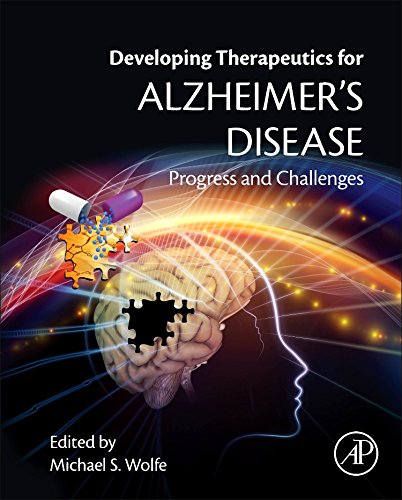

Most ebook files are in PDF format, so you can easily read them using various software such as Foxit Reader or directly on the Google Chrome browser.
Some ebook files are released by publishers in other formats such as .awz, .mobi, .epub, .fb2, etc. You may need to install specific software to read these formats on mobile/PC, such as Calibre.
Please read the tutorial at this link: https://ebookbell.com/faq
We offer FREE conversion to the popular formats you request; however, this may take some time. Therefore, right after payment, please email us, and we will try to provide the service as quickly as possible.
For some exceptional file formats or broken links (if any), please refrain from opening any disputes. Instead, email us first, and we will try to assist within a maximum of 6 hours.
EbookBell Team

5.0
28 reviewsDeveloping Therapeutics for Alzheimer's Disease: Progress and Challenges provides a thorough overview of the latest advances toward the development of therapeutics for Alzheimer’s disease, along with the major hurdles that still must be overcome and potential solutions to these problems. Despite the lack of progress toward developing therapeutics that can slow or stop the progression of this disease, important discoveries have been made and many promising approaches are advancing in preclinical studies and clinical trials. This book outlines the special challenges related to specific targets and approaches, while presenting a realistic, comprehensive and balanced view of drug discovery and development in this area.
Written by international leaders in the field, the book assesses prospects for the emergence of effective agents and allows readers to better understand the challenges, failures, and future potential for research in Alzheimer’s disease. This book is a valuable resource to academic scientists carrying out translational research in Alzheimer’s disease, industrial scientists engaged in Alzheimer's drug discovery, executives in biopharmaceutical companies making strategic decisions regarding the direction of internal research and potential outside partnerships, and graduate-level students pursuing courses on Alzheimer's therapeutics.